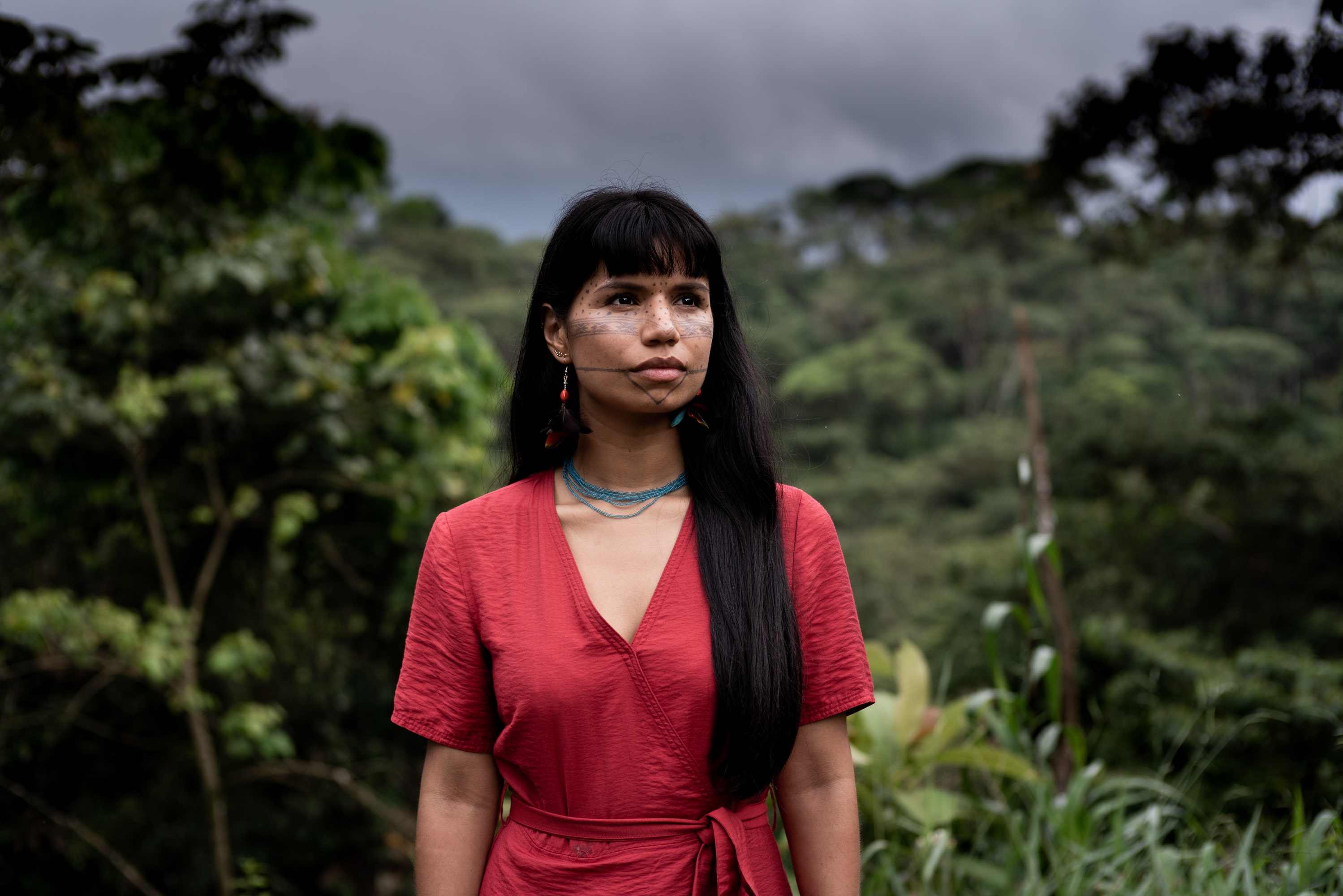Wildfires and droughts are fundamentally changing the relationship between Native women and the land they steward: “All of those wildfire seasons and that climate change impact affects everything we do and everything we are. The environment makes up part of our identity.”
Ray Levy Uyeda / The Lily
Since time immemorial — before the European colonization of what is now known as the United States — tribes of the Pit River Nation have made annual pilgrimages to Medicine Lake in Northern California. The Pit River creation story says that the Creator and his son bathed themselves in the lake after making the Earth. Each year in late July, Pit River tribes return to the sacred region for healing and ceremonial practice. But two byproducts of climate change prevented them from doing so this year: wildfire and drought.
Morning Star Gali, a member of the Ajumawi Band of the Pit River Tribe, said that the fires in the surrounding areas — including the Dixie, Fly, Lava and Beckwourth Complex, which together have burned more than 330,000 acres — have directly affected her tribal relatives and their sacred sites. This July, driving up to Medicine Lake, Gali noticed the dry conditions that precipitate dangerous and fast-spreading wildfires.
Once Gali and her family reached the highlands, she saw the lake’s low water level, which reflected California’s ongoing drought crisis — one that could be the worst in more than 1,000 years. The lake’s low water level meant that Gali wasn’t able to participate in her traditional ceremony of swimming as far out into the lake as possible and taking a full gulp of water. Gali said that the water now tastes like oil, probably from tourists’ motor boats. Between the wildfire smoke, residual motor boat oil and dangerously low water levels, “all of these are contributing factors — in terms of how challenging it is, when we talk about responsibility for land, and repatriation of land, and those traditional practices — those are all cultural barriers to those practices,” Gali said.
Wildfires in Western states have razed structures, displaced residents and altered air quality — and fundamentally changed the relationship between Native women and the land they have historically stewarded. Native and Indigenous women under evacuation orders or who face the potential of a mandate to leave their homes say they are losing access to sacred spaces for the near and long term. For them, the land is integral to their cultural practices.
“Since we’re place-based peoples … our homeland is really where we’re tied to [and] where we’re rooted,” said Samantha Chisholm Hatfield, an enrolled member of the Confederated Tribes of Siletz Indians and the tribal liaison and research associate at the Oregon Climate Change Research Institute. “We don’t just up and find another synagogue or another temple to worship at; our worship is here, in place, so ceremonies can’t exactly be transferred in the same way.”
She continued: “All of those wildfire seasons and that climate change impact affects everything we do and everything we are. … The environment makes up part of our identity.”
According to the National Interagency Fire Center, 85 large fires have burned more than 1.6 million acres of land across 13 states this year, with only four of those fires contained. Experts say that the fires will continue to grow and spread, and with many months more of fire season to go, the wildfires have become a significant marker of climate change’s impacts.
You can read the full article here.


